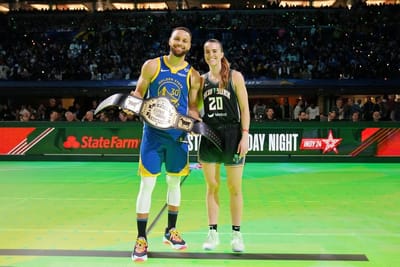Rambling about blogging and TV
I've long wondered when the act of blogging TV would take place. I don't mean writing blog posts about the last episode of Lost, I mean actually snipping segments from TV and posting them for all to see. Basically doing with TV what bloggers were doing in 1999 with the web -- snipping bits here and there to make a full picture of some topic through the use of quotes and links.
YouTube (and to a lesser extent Google Video) have finally reached a tipping point of blogging TV. With 1999 blogs, I knew that anything happening online that was interesting would get picked up by those few dozen blogs and eventually I stopped following primary sources like CNN and the NYT and just followed blogs. With TV, there's no way I can keep up, but I know if something interesting pops up, it'll be all over YouTube the next day.
I'd argue that YouTube is the king of this movement because they have such loose and lax legal guidelines. Of course, everyone that uploads claims they own the copyright and got release forms from everyone involved and cleared anything seen on camera, blah, blah, blah, but in reality, it is totally lawless and people are basically uploading random interesting TV bits they dump right off their computer. It reminds me of Napster in 1999, totally interesting, and totally illegal in the eyes of IP lawyers.
Like Napster, there are positive sides to this kind of loose fair use/infringement. It's only because things are so lax that everyone and their brother saw the Chronicles of Narnia SNL spoof video, and SNL ratings definitely saw a spike in the shows that followed (and I noticed SNL tried to capitalize on this by putting Andy Samberg in more skits and letting cast members do funny little videos for the two following episodes).
I'm really surprised that TVeyes didn't become the tool of choice for this type of activity. If you've never seen their service, it's really incredible. The thing with TVeyes is they already record pretty much all the major networks including cable outlets. Then they digitize it all, index the closed captioning, and provide search tools for the text and automatically crunch out video segments that meet your search criteria. So for instance, if like me you watched the SNL show on your DVR the night it aired, you could say "damn, that was good, I need to get a copy to my friends" you just pop onto TVeyes, do a search on NBC for "narnia" and it would find the segment and prepare a little 3 minute video capture of the show. It's like TiVo for all TV, with searching and quoting features built it, which is exactly what YouTube is doing, but they require that someone, somewhere recorded and digitized it.
TVeyes has been around since at least 2000, back when they'd email you whenever a word popped up anywhere on TV. Unfortunately, TVeyes seemed to focus on the enterprise, acting like a video clip service to corporate giants, but I guarantee if they kept this stuff open to all, everyone could flock to it and share the videos. Overnight, you'd have thousands of people mining the very best bits of TV and revolutionizing that industry.
In a way, I'm already starting to see the effects of YouTube and its many clones. Goofy clips are starting to pop up on more comedy shows like The Colbert Report -- stuff they never did before, but suddenly they have these small chunks of random comedy (click on the charlene video) that seem ripe for viral spread through YouTube, almost like they were trying for it.
Maybe stuff like clips on YouTube vs. regular format TV is kind of like how blogging was first viewed critically in 1999-2000. Everyone was afraid people wouldn't read 3,000 word essays if blogs took over -- that it was shortening our attention span as everything had to become small, easily read chunks with links to more information. It was the death of the long format and it was going to ruin us all. But it didn't, and I don't think sharing TV clips is going to ruin TV anytime soon.
Subscribe to our newsletter.
Be the first to know - subscribe today





